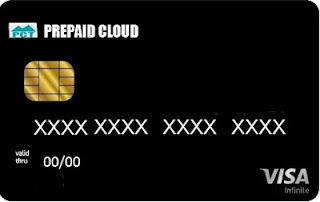Exchange kiosks at big stores often provide cash for coins poured
into the machine. While many people appreciate the opportunity to
convert their piggy banks and mason jars of spare pocket change into
paper bills, others see different kinds of value in metal currency.
Metal Exchange
From the dime to the quarter, many denominations have ridges on the outside edge. The reason for this design feature is a common scheme for making money throughout history. Back in the Roman and Medieval eras, when the currency was stamped in a way that left uneven blobs of metal around the edges, enterprising criminals could shave off the outer surplus from the edges. The shavings from those pieces minted in gold and silver quickly amounted to a sizable profit.
Modern American versions rarely contain anything as valuable as gold or silver, yet the copper in pennies has risen high enough to rival the value of the individual coins. Over the decades, as the worth of copper increased and supplies were cut short during wartime, many different materials were used to mint the tiny Abe Lincolns. Bronze, brass, and steel have been used to make pennies in various periods in the past. Since the 1980's, pennies have been made of 97.5 percent zinc, though it's still possible to find older pennies in circulation. When the copper market hit a high point in 2011, a 95 percent copper penny (like many of those from before zinc was used) was worth three times its face value.
Assembling Collections
A popular hobby among children and adults alike, coin collecting provides hours of entertainment and rewards attention to detail. Collectors acquire cardboard displays or booklets, which they use to arrange quarters from every state or collections along other themes. As an affordable alternative to collectible cards, children can be encouraged to collect pennies minted in all the different years. Special pennies were minted for the Lincoln bicentennial in 2009, and it can be interesting to note how the wheat cent was replaced by the Lincoln Memorial and later the Union Shield.
People who travel internationally or have an interest in foreign cultures may also enjoy collecting money from other parts of the world. Seeing the figureheads, shields, and symbols chosen by other countries provides a window into different cultures. After a period of time overseas, it may not be possible to get American cash for coins from other nations, at least not at a fair rate of exchange. The monetary leftovers from last-minute purchases tend to become souvenirs for that practical reason.
Whether you appreciate the metal in a coin or its historical value, it's worthwhile to take a second look at the pocket change that many people take for granted. For those who are living on tight budgets, simply getting cash for coins at the bank may be the best option. Many banks provide paper rolls so that you can organize stacks of quarters and dimes, etc. Even when that practical route is necessary, it's worth considering whether any older coins may be of greater value to collectors.
Metal Exchange
From the dime to the quarter, many denominations have ridges on the outside edge. The reason for this design feature is a common scheme for making money throughout history. Back in the Roman and Medieval eras, when the currency was stamped in a way that left uneven blobs of metal around the edges, enterprising criminals could shave off the outer surplus from the edges. The shavings from those pieces minted in gold and silver quickly amounted to a sizable profit.
Modern American versions rarely contain anything as valuable as gold or silver, yet the copper in pennies has risen high enough to rival the value of the individual coins. Over the decades, as the worth of copper increased and supplies were cut short during wartime, many different materials were used to mint the tiny Abe Lincolns. Bronze, brass, and steel have been used to make pennies in various periods in the past. Since the 1980's, pennies have been made of 97.5 percent zinc, though it's still possible to find older pennies in circulation. When the copper market hit a high point in 2011, a 95 percent copper penny (like many of those from before zinc was used) was worth three times its face value.
Assembling Collections
A popular hobby among children and adults alike, coin collecting provides hours of entertainment and rewards attention to detail. Collectors acquire cardboard displays or booklets, which they use to arrange quarters from every state or collections along other themes. As an affordable alternative to collectible cards, children can be encouraged to collect pennies minted in all the different years. Special pennies were minted for the Lincoln bicentennial in 2009, and it can be interesting to note how the wheat cent was replaced by the Lincoln Memorial and later the Union Shield.
People who travel internationally or have an interest in foreign cultures may also enjoy collecting money from other parts of the world. Seeing the figureheads, shields, and symbols chosen by other countries provides a window into different cultures. After a period of time overseas, it may not be possible to get American cash for coins from other nations, at least not at a fair rate of exchange. The monetary leftovers from last-minute purchases tend to become souvenirs for that practical reason.
Whether you appreciate the metal in a coin or its historical value, it's worthwhile to take a second look at the pocket change that many people take for granted. For those who are living on tight budgets, simply getting cash for coins at the bank may be the best option. Many banks provide paper rolls so that you can organize stacks of quarters and dimes, etc. Even when that practical route is necessary, it's worth considering whether any older coins may be of greater value to collectors.
When considering cash for coins Medford, MA residents visit CollVest Coins. Learn more at http://www.collvestcoins.com/Coin_Collections/.
Article Source:
http://EzineArticles.com/expert/Andrew_Stratton/83489

